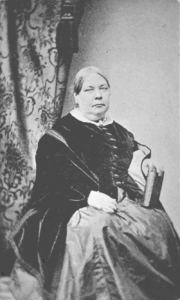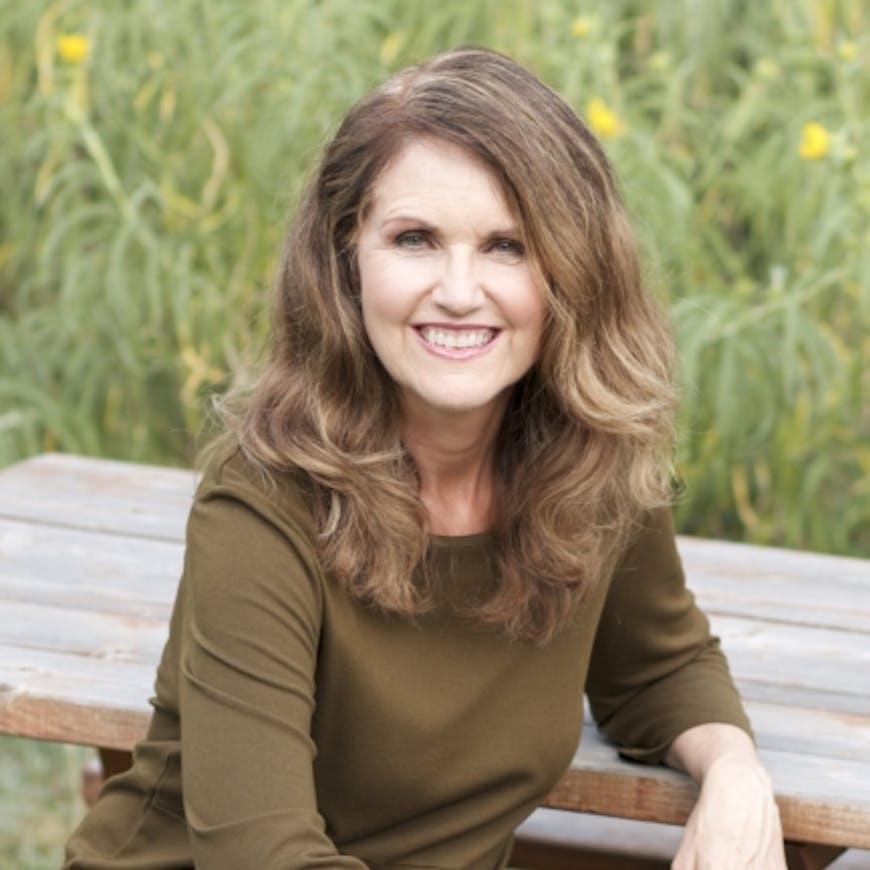by Lydia Reeder

For two days, on June 27 and 28, 1860, Dr. Harriot Kezia Hunt’s Boston home teemed with activity. Housemaids arranged dozens of flowers—roses, lilies, chrysanthemums, sunflowers—into beautiful bouquets, filling the entire house with delightful scents. In the kitchen, the cook prepared assorted pound cakes, strawberry tarts, baked pears, and a towering bridal cake.
To celebrate her twenty-five-year career in medicine, Hunt invited colleagues, friends, and patients to what was described as her “silver wedding” anniversary. The abolitionist newspaper The Liberator, published by William Lloyd Garrison, referred to the occasion as “the 25th anniversary of the union of Miss Harriot K. Hunt and Harriot K. Hunt, M.D.” Nearly fifteen hundred visitors arrived to congratulate Hunt on her well-lived life.
Caring for women’s health had been deeply fulfilling for Hunt. Before Elizabeth Blackwell became the first American woman to graduate from medical school in 1849, Hunt had already been advocating for women’s education in medicine. A decade earlier, she trained in the growing field of eclectic medicine — herbal treatments, water cures, and human hygiene — and was recognized throughout New England as the first woman in America to practice medicine professionally.
Boston was home to many alternative medical practitioners who sought to heal patients without using dangerous allopathic therapies such as bloodletting, poisonous drugs, or leeches. Hunt championed a healthier approach and advocated preventing illness through proper exercise, rest, diet, and hygiene. She organized the Ladies Physiological Society of Boston, empowering women to understand their own bodies and helping them to break free from dependence on male doctors who wished to keep them uninformed.
She treated women from all classes who were drawn in by her caring bedside manner and gentle remedies. Her experiences confirmed her belief that “concealed sorrows” were often the root of physical ailments. By listening to her patients’ “heart histories,” she witnessed numerous accounts of domestic suffering.
After ten years, her diverse medical practice had made her wealthy, but she desired the credibility that came with a medical degree. Thus, she applied to Harvard Medical School. Initially, she was hopeful about her chances; Dean Oliver Wendell Holmes admired her zeal for science. However, despite his encouraging remarks, her application was ultimately rejected.
Fueled by Harvard’s rejection, Hunt delivered a series of free lectures aimed at educating the public about women’s rights. In 1850, she gave a passionate speech advocating for the inclusion of more women doctors at the national women’s rights convention held in Worcester, Massachusetts. Partnering with philanthropist and activist Caroline Severance and other wealthy donors, Hunt established a medical fund that provided interest-free loans for aspiring female medical students across the country. In 1853, in recognition of her career and support for women doctors, the Female Medical College of Pennsylvania awarded her an honorary degree.
Hunt often said that her medical career was the only marriage she needed. Thus, after twenty-five years, she formally celebrated her commitment to her career.
On June 27, her parlor overflowed with visitors, including her protégé Dr. Marie Zakrzewska, women’s rights activists Lucy Goddard, Caroline Severance, and Edna Cheney. Drs. Elizabeth and Emily Blackwell sent a message honoring the “brave pioneer female physician.” The ceremony began as twelve young women dressed in white, representing the months of the year, entered Hunt’s parlor. Minutes later, the esteemed doctor arrived, accompanied by her sister. Both wore green wreath hats that balanced precariously as they sat on the sofa at the center of the room.
For hours, Hunt listened to lengthy tributes praising her contributions to medicine and women’s rights. Admirers read scripture, recited poems, delivered speeches, and presented gifts. The highlight of the day came when the managers of Boston’s Hospital for Women and Children presented her with a gold ring.
Hunt’s “marriage” ceremony symbolized the culmination of a career that challenged gender expectations and expanded opportunities for women. As one friend told The Liberator, Hunt “is a rare woman, whom it is a privilege to know. That she may long live to bless the world by her radiant cheerfulness, noble and high views of life … is the earnest wish of her very many friends.”
Sources:
The Liberator, Sep 30, 1859, Page 3.
The Liberator, July 13, 1860, Page 4.

Lydia Reeder’s research and writing brings to light the stories of little-known or forgotten pioneers in their professions and daily lives. Her first book, Dust Bowl Girls, was a Junior Library Guild Selection, a finalist for the Oklahoma Book Award and the WILLA literary Award, and won the For the Love of the Game award from the Women’s Basketball Hall of Fame. A regional bestseller in Oklahoma and Colorado, it was named as a 2017 top nonfiction book by Amazon, Bustle, Romper, and Bookbub, and optioned for film five times. A native of Oklahoma, Lydia now lives in Denver, CO.
